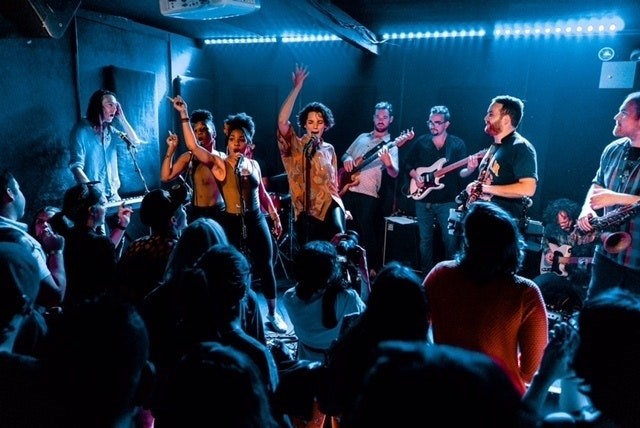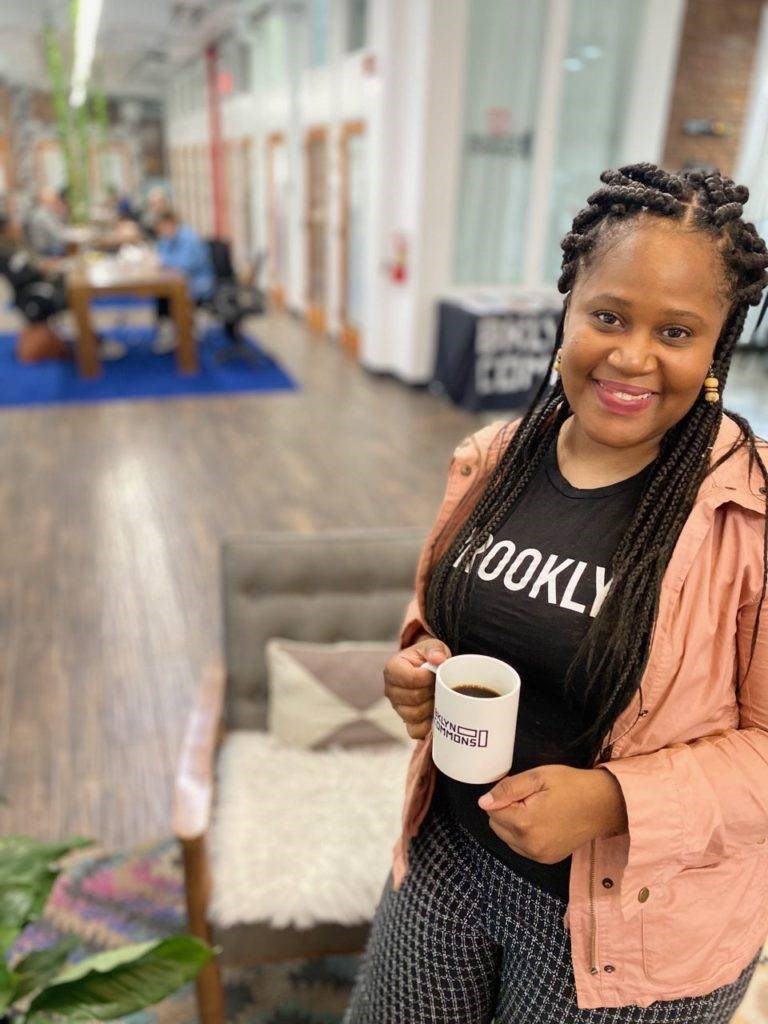Emerging Brooklyn singer Samantha Bowers—better known to her devoted fans as Sammy Rae—was scheduled to take her band on a national tour from mid-March through the first week of May. Several of the venues sold out early.

Photo: BK Reader
"A two-month tour like that could pay your rent for six months," she recently explained to BK Reader.
Sammy Rae & The Friends, her eight-person band, was on the cusp of a major breakthrough. The group's rising trajectory suggested that the national tour would be a big step. But then, the unexpected happened: a global pandemic struck on a scale the world hasn't seen for a century.
"It's all been canceled," the band leader lamented. "To have an entire national tour canceled has been devastating."
Ticket and merchandise sales at gigs represented the lion's share of revenue. Now, her band members have no income, and Rae makes a few dollars here and there from occasion sales on her website.

Photo: sammyrae.com
"It's difficult. I'll be honest," said the singer who fuses jazz and rock in her musical style. The Bushwick resident has retreated home to Connecticut where she is riding out the economic storm while nursing her physical and mental health during this tumultuous time.
The gig nation
Rae is one of the 1.3 million New York freelancers who comprise one-third of the city's works. This growing segment of the workforce has ballooned to about 56 million workers nationwide, yet they are often overlooked when it comes to employment protections. So, March 27 marked a milestone. Washington lawmakers added them to the traditional workforce in their $2 trillion COVID-19 stimulus package.
"This bill is an incredible victory for the millions of freelancers who are unable to work due to this crisis," Freelancers Union President and Executive Director Rafael Espinal said in a statement sent to BK Reader. "We now call on state and local governments to follow suit and ensure their relief packages include real support for freelancers, including zero-interest small business loans, further unemployment expansion, and tax relief."
Widespread pain
State and local lawmakers are now hammering out the details and scope of coronavirus relief measures that could include a rent freeze. Meanwhile, there's a lot of pain and worry among self-employed New Yorkers who wonder if the measures will include them.

BKLYN Commons, which operates two Brooklyn co-working spaces, is partially shut down, said Johanne Brierre, head of growth for BKLYN Commons. Members who are considered essential businesses, such as health insurance companies, still have access to their office.
"I've had to shift a little bit to crisis management," said Brierre, who is focused on helping the members—many of them solopreneurs—grow their business. "It's tough to hear that, a few weeks ago, a business was flourishing and talking about expanding, and now it's like hold everything. It's a disaster."
These days Brierre spends a lot of time building online tools to keep the community together and to share information about resources to help them stay financially afloat.
Turning lemons into lemonade
The coronavirus outbreak closed doors to Osayande Angaza but opened others for the IT professional. Angaza's company, We Define IT, is based in Bed-Stuy and has nationwide and international clients. They include a range of businesses, schools, legal and medical practices and churches that have closed.
However, Angaza has found a new crop of clients.
"People now need to work remotely from home. The technology to do that varies. And people need to do that securely," said Angaza, adding that his business isn't growing in this time of economic crisis but balancing out with the influx of new customers.
Others have found ways to use social media to help make ends meet. Danny Castro, who has been producing DJ events for more than 20 years, said he "hasn't been able to conduct business, period."

Castro and his partners had organized Lyricist Lounge and Toca Tuesdays events regularly for decades until the pandemic forced venues to shutter their doors.
"We have been doing Instagram Live performances," Castro said. "That's a good avenue to keep our name out there and to get donations."
Rae also tapped into the band's Instagram platform and was pleasantly surprised that it generated a few hundred dollars in an hour-long live stream a few weeks ago.
"Many people came to the rescue. We have really dedicated fans," she said. "When shows were canceled and they got a refund, these fans were happy to redirect it back to us because they knew we were not going to get that check from the venue and needed some help."
There's perhaps a silver lining in this pause. Yves Darbouze, the managing partner at Queue.NYC, encourages freelancers to see this as a glass-half-full moment.
His company is structured like an incubator to help small digital content creators negotiate higher advertising rates by partnering directly with major brands like AT&T.
"At this time, don't focus on all the things you can't do but focus on the things you can do," he advised. "If, for example, you have code problems, now is the time to dig in and test your software. That's the benefit of an emergency. It allows you to think about doing things a different way."




